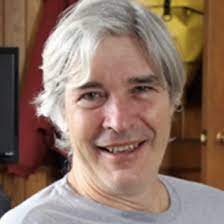
The Future of Ecological Economics with Professor Joshua Farley
Economic systems undergo continual evolution. Ecological economics emerged in the 1970s and 1980s in response to growing evidence of the harms caused by economic growth and inequality with the explicit intention of changing the economic system. Key themes in ecological economics include uncertainty, the normative goals of sustainable scale and just distribution, collective action, co-evolution, transdisciplinarity and the need for radical systemic change. This presentation will use multi-level selection theory (MLS) to help understand how these themes are connected, to offer insights into how we might promote collective action at the scale required to achieve a socially just sustainability transition, and to reassess the distinction between normative and positive science. I will show our most serious problems, ranging from climate change and energy transitions to pandemics, are social dilemmas, defined as situations in which cooperation leads to the best outcomes for society but selfishness benefits the individual. To paraphrase Garret Hardin, social dilemmas have no technical solutions; they require a fundamental extension of morality. Groups are united by culture, specifically by moral and ethical norms that prioritize the group over the individual. Mainstream economics focuses on the individual and ecological economics on the group. To achieve its goals, ecological economics must embrace the need for intentional cultural evolution driven by a fundamental extension of morality.
Bio:
Josh Farley is an ecological economist and Professor in Community Development and Applied Economics and Public Administration and a Fellow in the Gund Institute for Environment. He is a past President of the International Society for Ecological Economics and the lead person for the Ecological Economics Network Strategy Center, part of the Leadership for the Ecozoic Initiative with McGill University.
His broad research interests focus on the design of an economy capable of balancing what is biophysically possible with what is socially, psychologically, and ethically desirable. His current research focuses on the economics of essential resources (e.g. food, energy, water, information, and ecosystem services), social dilemmas, the democratization of monetary and financial systems, ecosystem services (defined as nature’s benefits to the biotic system of which humans are a part), the evolution of cooperation, agroecology, and ecology rehabilitation in Brazil’s Atlantic Forest, the economics of information, and The Commons.
With economist Herman Daly, Joshua co-authored the foundation textbook Ecological Economics: Principles and Applications; he also co-authored Restoring Natural Capital: Financing and Valuation.


Add Your Comment